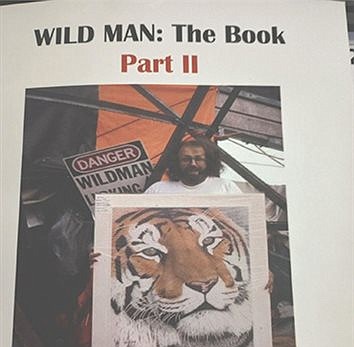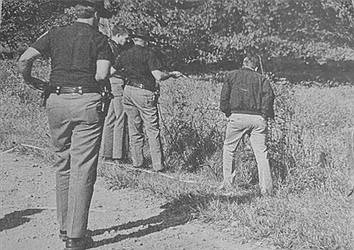Indiana AG Rokita files Lawsuits Against TikTok, asks Hoosiers to delete app
March 8, 2023 at 9:15 p.m.

In December of 2022, Indiana Attorney General Todd Rokita filed two separate lawsuits against the social media company TikTok, accusing the company of making false claims about the safety of user data, and age-appropriate content. “The TikTok app is a malicious and menacing threat unleashed on unsuspecting Indiana consumers by a Chinese company that knows full well the harms it inflicts on users,” Rokita said in a statement at that time. “With this pair of lawsuits, we hope to force TikTok to stop its false, deceptive, and misleading practices, which violate Indiana law.”
TikTok is a video-sharing app that allows users to create and share short videos on any topic. It's mainly mobile-based, and users around the world have become admittedly addicted to the fun of scrolling through the short videos and sharing them with others. When we think of media “going viral,” it is through platforms like this. While there has been increasing concern across the US about the use of TikTok, the Indiana lawsuits marked the most serious action taken yet by a state against the Chinese-owned company. So what makes this app any different than the many other video-sharing platforms, and why is the government getting involved?
American teens spend an average of 99 minutes per day on the app, Indiana's first lawsuit claims, adding that this exposure can negatively influence the behaviors of minors. The second suit filed alleges that TikTok has “reams” of highly sensitive data and personal information about consumers in Indiana and that the company “has deceived those consumers to believe that this information is protected from the Chinese government and Communist Party,” according to the December media release.
According to a recent report in the New York Times, “Lawmakers and regulators in the West have increasingly expressed concern that TikTok and its parent company, ByteDance, may put sensitive user data, like location information, into the hands of the Chinese government,” the report states. The app has already been banned for three years on US government devices used by the Army, the Marine Corps, the Air Force and the Coast Guard. However, these bans typically don't extend to personal devices. Some college campuses have attempted to block the app from campus Wi-Fi networks, though students quickly switch to cellular data to continue use.
Many individual states have stepped up security around the app, according to the NYT. Since November, more than two dozen states have banned TikTok on government-issued devices. Around the globe, other governmental entities are taking notice as well. In fact, the entire nation of India banned the platform in 2020 as their government cracked down on Chinese-owned apps, asserting that the companies were secretly collecting and sending users' data to servers outside India.
Attorney General Todd Rokita spoke at a hearing in Allen County last week, after which he released the following statement: “Our team put forward its case demonstrating in court today that TikTok's app has dangerous depictions of drug use, alcohol consumption, illicit sexual activities and other harmful content. TikTok's false assurance that its app is safe for users as young as 12 years old is a violation of Indiana's Deceptive Consumer Sales Act. I'm proud of our team's excellent legal work in this case. We will continue to unwaveringly work to protect young Hoosiers and hold this Chinese-Communist-controlled company accountable.” In a video statement released online before the hearing, Rokita called on Hoosiers to delete the app from theirs and their children's phones. TikTok continues to maintain innocence in these areas, and claims they have distanced themselves from ByteDance, the parent company in question. More information will be released as these lawsuits continue.
Latest News
E-Editions
Events
In December of 2022, Indiana Attorney General Todd Rokita filed two separate lawsuits against the social media company TikTok, accusing the company of making false claims about the safety of user data, and age-appropriate content. “The TikTok app is a malicious and menacing threat unleashed on unsuspecting Indiana consumers by a Chinese company that knows full well the harms it inflicts on users,” Rokita said in a statement at that time. “With this pair of lawsuits, we hope to force TikTok to stop its false, deceptive, and misleading practices, which violate Indiana law.”
TikTok is a video-sharing app that allows users to create and share short videos on any topic. It's mainly mobile-based, and users around the world have become admittedly addicted to the fun of scrolling through the short videos and sharing them with others. When we think of media “going viral,” it is through platforms like this. While there has been increasing concern across the US about the use of TikTok, the Indiana lawsuits marked the most serious action taken yet by a state against the Chinese-owned company. So what makes this app any different than the many other video-sharing platforms, and why is the government getting involved?
American teens spend an average of 99 minutes per day on the app, Indiana's first lawsuit claims, adding that this exposure can negatively influence the behaviors of minors. The second suit filed alleges that TikTok has “reams” of highly sensitive data and personal information about consumers in Indiana and that the company “has deceived those consumers to believe that this information is protected from the Chinese government and Communist Party,” according to the December media release.
According to a recent report in the New York Times, “Lawmakers and regulators in the West have increasingly expressed concern that TikTok and its parent company, ByteDance, may put sensitive user data, like location information, into the hands of the Chinese government,” the report states. The app has already been banned for three years on US government devices used by the Army, the Marine Corps, the Air Force and the Coast Guard. However, these bans typically don't extend to personal devices. Some college campuses have attempted to block the app from campus Wi-Fi networks, though students quickly switch to cellular data to continue use.
Many individual states have stepped up security around the app, according to the NYT. Since November, more than two dozen states have banned TikTok on government-issued devices. Around the globe, other governmental entities are taking notice as well. In fact, the entire nation of India banned the platform in 2020 as their government cracked down on Chinese-owned apps, asserting that the companies were secretly collecting and sending users' data to servers outside India.
Attorney General Todd Rokita spoke at a hearing in Allen County last week, after which he released the following statement: “Our team put forward its case demonstrating in court today that TikTok's app has dangerous depictions of drug use, alcohol consumption, illicit sexual activities and other harmful content. TikTok's false assurance that its app is safe for users as young as 12 years old is a violation of Indiana's Deceptive Consumer Sales Act. I'm proud of our team's excellent legal work in this case. We will continue to unwaveringly work to protect young Hoosiers and hold this Chinese-Communist-controlled company accountable.” In a video statement released online before the hearing, Rokita called on Hoosiers to delete the app from theirs and their children's phones. TikTok continues to maintain innocence in these areas, and claims they have distanced themselves from ByteDance, the parent company in question. More information will be released as these lawsuits continue.





